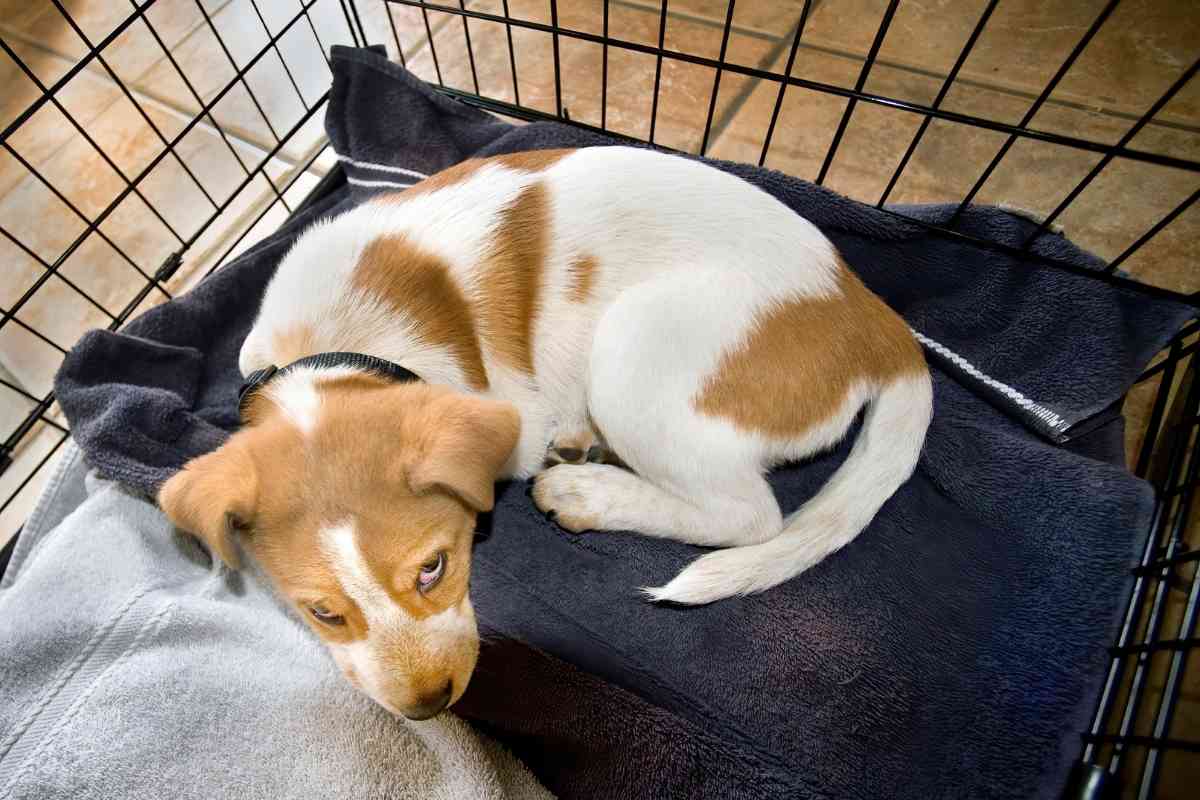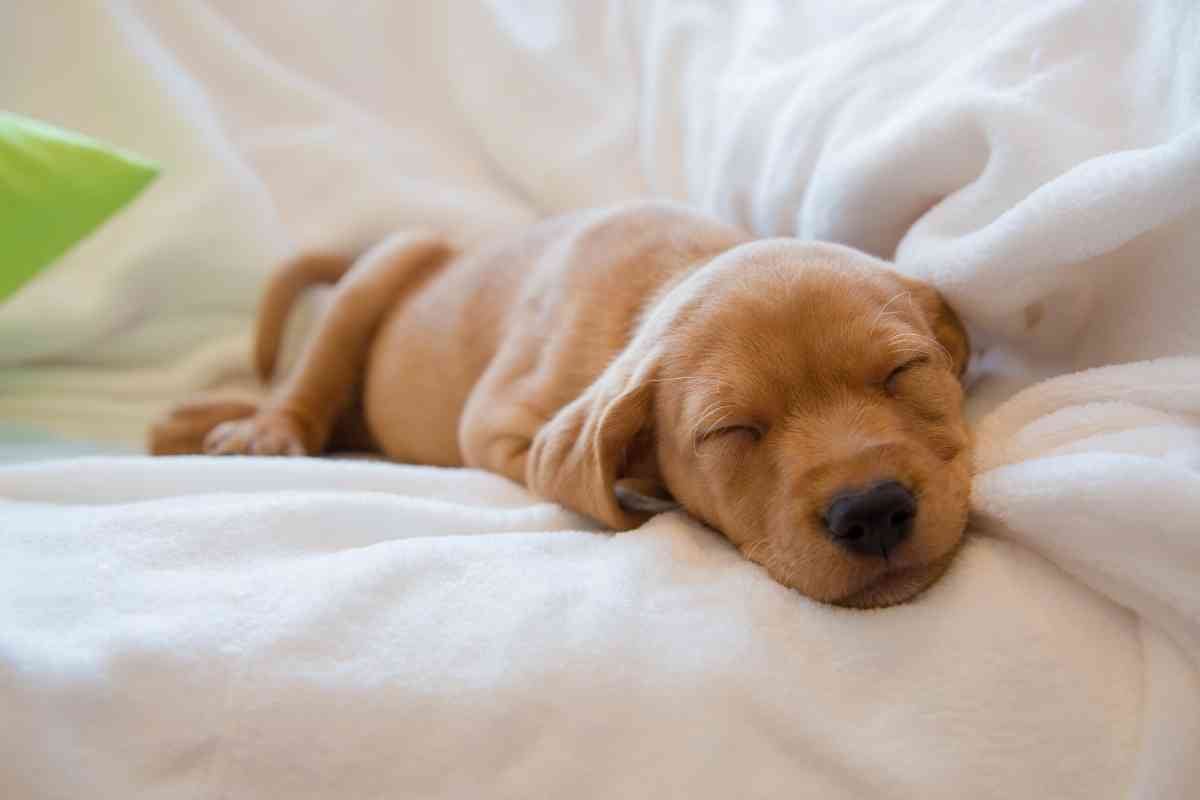5 Signs Your Puppy Is Ready To Sleep Out Of Their Crate
Crate training is essential if you have a puppy as the crate acts as their sleeping area, especially at night, to prevent them from roaming around or getting

How do you know when a puppy can sleep out of their crate?
Your puppy is ready to sleep outside the crate at eight months and sometimes one to two years. For a smooth transition, you should ensure that your puppy has completed crate training and undergone house training. You must also ensure that your home is puppy-proof to avoid night-related accidents.
Letting your puppy sleep out of their crate is a personal decision; age varies from person to person. That said, you must ensure that every item that can present danger at night is kept away and that they have a comfortable place to sleep.
If you want your puppy to start sleeping out of their crate, look for the signs discussed in this article. The article also explores various ways to prepare your puppy to sleep outside the crate at night.
Signs that Your Puppy is Ready to Sleep Outside of Their Crate
Most times, puppy owners decide when to let their pets sleep out of the cage. However, you can look for the following signs to determine whether your puppy is ready to sleep outside their cage.
Is Potty-Trained
If you want your puppy to start sleeping on a bed instead of their cage, you must ensure that they have completed the potty training. Like teaching a toddler, potty training your puppy is a lengthy process that can make you feel like giving up.
However, potty training your puppy while still in the crate will be much faster. And once your puppy is fully trained, you can let them sleep on the bed, as they will know where to go to the toilet, ensuring you wake up to a clean house.
Do not attempt to let your puppy sleep out of their crate if they have not completed potty training. This is because you’ll find them peeing on the floor and other items in the room, which is quite a task to clean and leave the foul odor alone.
No Longer Barks Or Whines To Leave The Crate
If your puppy is crate trained, you won’t find them scratching the sides of the crates, barking, whining, or attempting to escape. They will quietly sit and await you to take them for a walk or potty. However, the crate training process is not easy, and your puppy will make a lot of noise before they adapt.
Once you notice that your puppy no longer attempts to escape the crate, it’s time to let them sleep outside the crate and onto a puppy bed. However, if you try to let your puppy sleep out of their crate before it’s fully trained, you will have interrupted the training process, reverting to zero.
So, before letting your puppy sleep on a bed instead of a crate, ensure that the crate training process is successfully over.
Sleeps Till Morning

Your puppy is ready to sleep out of their crate if they have been sleeping throughout the night without waking you up at night to go potty.
However, if your puppy still wakes up in the middle of the night wanting to go potty or seeking your attention due to boredom, then they should stay confined in their crate at night.
No Longer Teething
Puppies start teething at about 10 to 16 weeks and finish growing all their teeth at about six months. During teething, ensure your puppy stays in their crates, especially at night when no one supervises them. This is because puppies tend to bite everything they come across; if you leave them out of the cage, you’ll wake up to couches and other items having tears.
Even as a dog, you will notice that some dogs have the habit of chewing on things, so buy them chewable toys and puppy-proof your house to limit the destruction. You can also minimize the chewing pattern at night by ensuring that your puppy’s diet has all the nutrients.
It would also be good to ensure they are tired before bedtime by engaging in as much physical activity as possible. This will help them fall into a deep and restful sleep.
Puppy Proof House
Check if you have a puppy-proof house, especially the room where your puppy is supposed to spend the night. Ensure that all the chewable, dangerous, and toxic materials are out of reach and well-locked in the cabinet.
These include shoes, books, cords, remote controls, and houseplants. This helps minimize the chances of your puppy injuring themselves.
You can start by having them sleep in the bathroom, which has few things, and then gradually introduce other rooms as they adapt to the new environment.
Preparing Your Puppy to Sleep out of Their Crate
Before letting your puppy sleep out of their cage, you must prepare them by doing the following.
Adjust their Schedule
Do not just start letting your puppy sleep out of the crate abruptly. It has to be a process where you adjust their schedule, from feeding time to play and potty breaks. Ensure that their new plan will enhance their experience sleeping outside the crate at night.
For instance, you can move their dinner time to around 3 or 4 so that by the time they sleep, they will have as many potty breaks as possible, thus minimizing the chances of waking up for potty.
Let them play for an hour or before bedtime; this ensures that they are tired when going to sleep, thus, sleeping till morning.
Let them slowly adapt to sleeping outside the crate by letting them sleep in a confined place such as the bathroom or a section or the kitchen proofed with a baby gate. This gives your puppy freedom while limiting access to the rest of the house.
Don’t Let Them Eat Food And Water Before Bedtime
Feeding your puppy a few hours before bedtime ensures that they do not pee or poop in the house at night. Also, ensure that all your puppy’s feeding dishes are empty an hour before bedtime. This gives them enough time to go potty.
However, consult your veterinarian before adjusting the schedule if your puppy has health issues.
Tire Your Puppy
Have your puppy engage in all forms of play before bedtime to ensure that they are tired enough such that the minute they lay on the bed, they will wake up in the morning.
A bored puppy will have you up all night as they will bark and play in the house, and if you don’t like noise at night, you’ll have to keep them company.
Puppy-Proof The Room
Puffy-proof the sleeping room to ensure no damage to items happens at night. And that your puppy does not consume harmful substances.
A Dark And Quiet Room
Puppies do not like noise, so ensure it is cozy, dark, and quiet as the littlest sound will have them up.
Set Up Camera
Like we do with toddlers, you can set up a baby camera to see what your puppy is up to at night. This helps keep watch and ensure nothing out of the ordinary happens.
Arise Early
Most people first go to the toilet after waking up, and puppies are no different. So wake up early to ensure that your puppy goes potty on time.